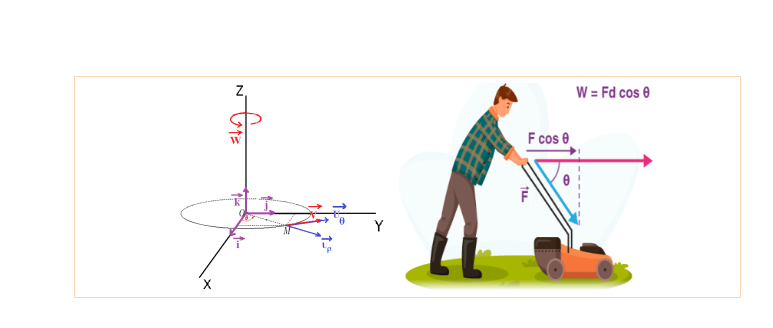semestre1
This English course is designed for L1 students (computer sciences field)
- Teacher: Belarbi FATINE MERIEME
This course is intended for first year computer science students. It contains four chapter: real number, complex numbers, sequences and functions.- Teacher: ARICHE Sadjiya

"Material point mechanics"
Material point mechanics is a fundamental branch of physics that focuses on the study of the motion of objects that can be considered as points, i.e. objects whose dimensions and shape are irrelevant to the analysis of motion.
Mechanics of material point is based on Newton's three laws of motion. These laws describe how objects react to the forces applied to them, and how they move accordingly.
Mechanics of material point makes it possible to analyze and predict the motion of objects using these fundamental laws, as well as other concepts such as kinetic energy, potential energy, angular momentum and conservation of momentum. It is crucial to many practical applications, and a cornerstone of our understanding of the world around us.
- Teacher: Mraouefel Ahlame
Detailed solution of the first chapter on Real numbers- Teacher: HABANI SADEK
The electricity program for semester 1 consists of three main parts: The first partis dedicated to the study of vacuum electrostatics, a discipline that examines the interaction between stationary electrically charged particles.
Electrokinetics is addressed in the second part. This discipline explores the laws governing the flow of electric current.
The third part focuses on magnetic field, which investigates the interactions between charged particles in motion. The order in which these parts are presented is justified by the fact that electromagnetism constantly builds upon concepts acquired in electrostatics and electrokinetics.
- Teacher: LASLOUNI Warda
- Teacher: Mraouefel Ahlame
This Mechanics of a Point Particle course is designed for first-year LMD computer science students (2023/2024). We will explore three essential chapters that will help you acquire fundamental physics skills.
In the first part of this course, we dive into the exciting world of kinematics. You'll learn how to describe and analyze the motion of objects using concepts such as velocity, acceleration and trajectory. Our aim is to give you a solid grounding in kinematics to help you understand motion in the context of computer science, for example in virtual motion simulation. In the second part, we look at dynamics, which examines the forces and interactions that affect the motion of objects. You'll learn about Newton's laws and how they are crucial for predicting the behavior of moving objects. Finally, in the third part of the course, we'll explore work and energy.
we study key concepts such as kinetic energy, potential energy, and the principle of energy conservation..." You'll understand how the work done on an object is related to its energy changes
Every chapter is illustrated by examples and practical exercises
the 2nd to dynamics, and the last to work and energy.
- Teacher: BOUFROUA Naouel
- Teacher: DJOUDI Yasmina
